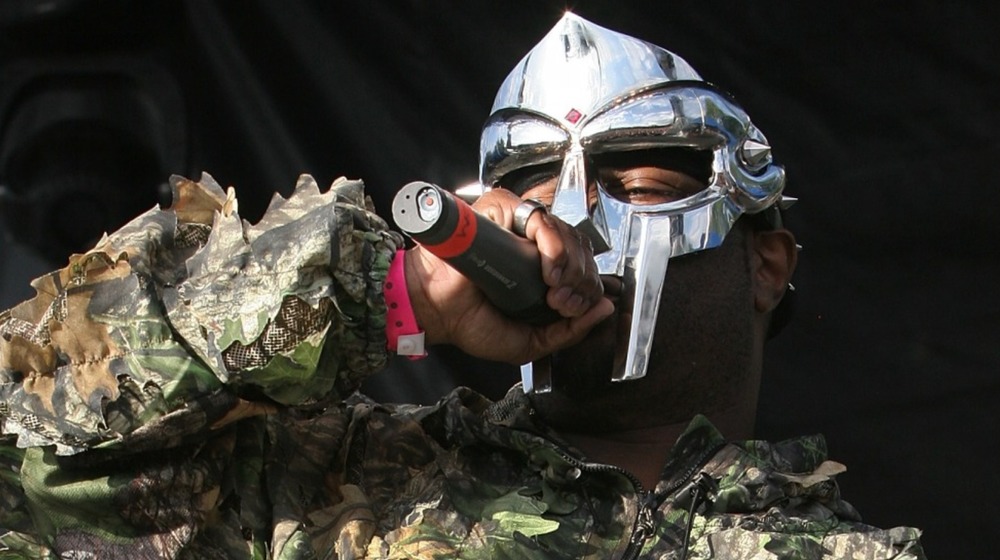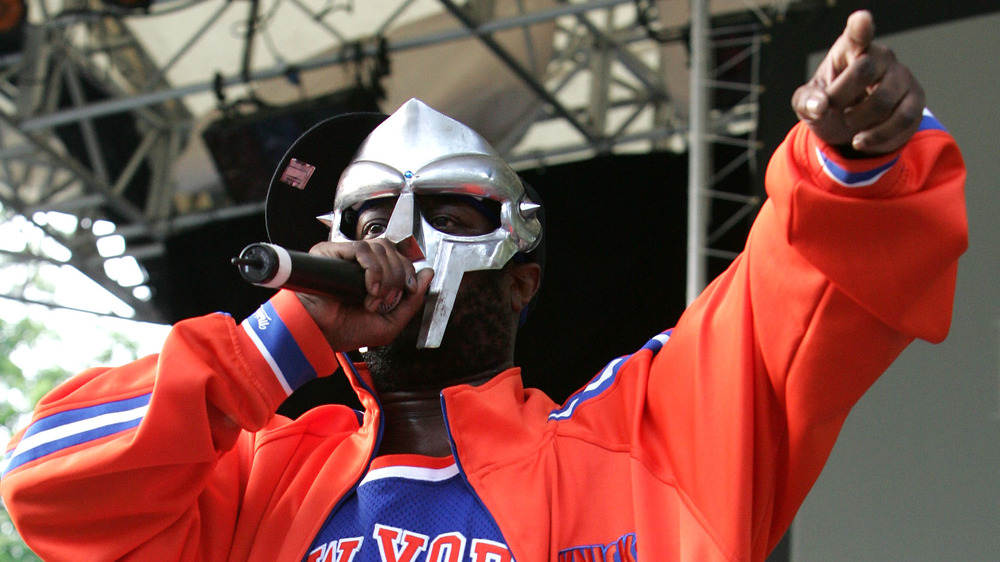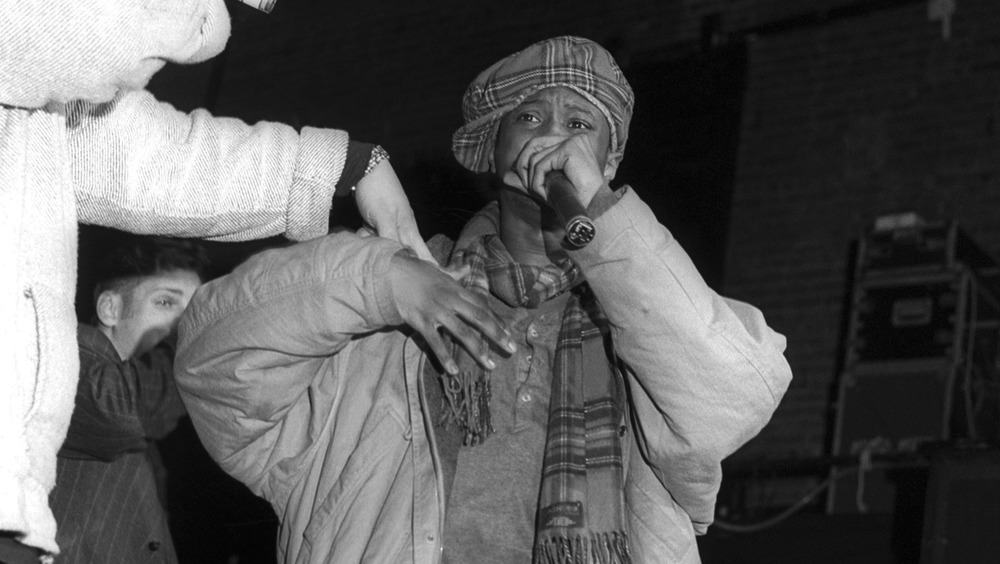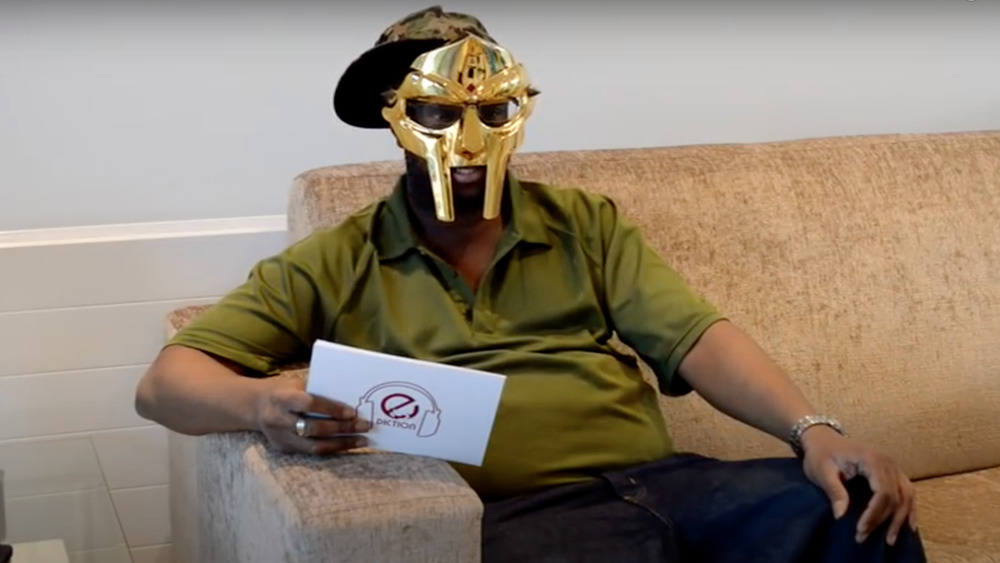The Tragic Death Of Legendary Rapper MF DOOM
Rapper MF DOOM's family confirmed his death in a statement on Dec. 31, 2020. The legendary rapper was only 49. DOOM's wife, Jasmine Dumile, posted the news of her husband's death on Instagram, confirming that he died on Oct. 31, 2020. As of this writing, the rapper's cause of death has not been disclosed.
Dumile's poignant Instagram message said, "The greatest husband, father, teacher, student, business partner, lover and friend I could ever ask for.Thank you for all the things you have shown, taught and given to me, our children and our family. Thank you for teaching me how to forgive beings and give another chance, not to be so quick to judge and write off. Thank you for showing how not to be afraid to love and be the best person I could ever be." The heartbreaking message continued, "My world will never be the same without you. Words will never express what you and Malachi mean to me, I love both and adore you always. May THE ALL continue to bless you, our family and the planet."
Amid the news of MF DOOM's passing, countless fans and collaborators took to social media to honor his memory. Keep on reading to see what people had to say.
Twitter pays homage to MF DOOM
MF DOOM, known for his "impossibly intricate rhyme schemes and his signature mask," according to Rolling Stone, faced several tragedies before his death. DOOM's brother, DJ Subroc died in 1993, and the rapper left the public eye for several years until the late '90s, Billboard noted. Then, in 2017, the rapper announced via Instagram that his 14-year-old son, Malachi Ezekiel Dumile, had died, per NME. Despite all of that, the mysterious rapper continued to create music, recording six studio albums.
MF DOOM's life was quickly memorialized on Twitter, with Diplo penning, "Seeing the tweets about MF DOOM show me a whole generation was touched by his madness, wordplay, and voice.. 20 years ago I was home listening to mixtapes and 12"s learning.. trying to emulate a sound. a true inspiration for how far you can push a genre.. rest in peace villain."
One fan said, "RIP MF DOOM. He was my introduction to a new realm of underground hip-hop in early high school. Don't even know what to say, except to go listen to the music he made and don't miss out on it. Really just speechless." Kojo Ebro wrote, "MF Doom is a legend. Loved his whole journey. He is and will always be constant reminder that us mainstream media is not needed to keep HipHop healthy & thriving!"
MF DOOM went under quite the musical transformation
Before MF DOOM was known as an "elusive bard of hip hop" (per Rolling Stone), he called himself Zev Love X. He found his footing in the rap world as part of the group KMD, which included his younger brother, DJ Subroc (per People). The group completed two albums together: Mr. Hood in 1991 and Black Bastards in 1993, although the latter album was not released until 2001 due to Subroc's untimely death. Consequently, DOOM, still known as Zev Love X at the time, was released from his record contract and became homeless, per Deadline. He was later rediscovered and in 1999 he made his musical comeback with his debut album as a solo artist. He traded the moniker Zen Love X for MF DOOM, which came with a new persona and a new look: a mask he would wear while performing.
While DOOM may have never have predicted his success, rhyming was always his talent. "Ever since third grade, I had a notebook and was putting together words just for fun," DOOM told The New Yorker in 2009. "I liked different etymologies, different slang that came out in different eras. Different languages. Different dialects. I liked being able to speak to somebody and throw it back and forth, and they can't predict what you're going to say next," he continued. In fact, it was his passion for words that led him to donning the infamous mask while performing.
MF DOOM says he wore a mask out of 'necessity'
When MF DOOM was rediscovered after his break from music, it was while performing in a New York City cafe wearing a "stocking mask," per Deadline. So, it makes sense that his new style included performing in a mask. However, there was much more to the story than sentimental value. For DOOM, it "came out of necessity," per a 2009 interview with The New Yorker.
"I wanted to get onstage and orate, without people thinking about the normal things people think about. Like girls being like, 'Oh, he's sexy,' or 'I don't want him, he's ugly,' and then other dudes sizing you up," he stated. "A visual always brings a first impression. But if there's going to be a first impression I might as well use it to control the story. So why not do something like throw a mask on?" He added that he wanted to use his DOOM persona as a character through various projects of his.
Following the 1999 comeback, DOOM released several albums with varying stage names. His 2004 project Madvillainy is his most notable, according to The New Yorker. His last two albums were both released in 2009, with the latter one, named Unexpected Guests, reaching the 52nd spot on the Billboard 200 chart.
MF DOOM's talent touched many and that his legacy won't be forgotten anytime soon.




